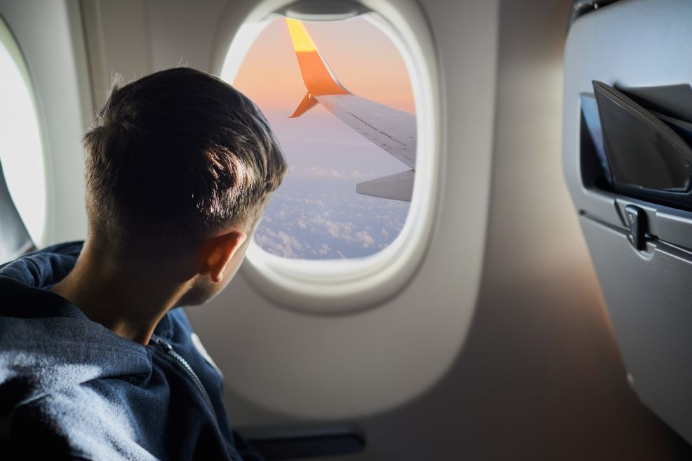How to Stay Safe While Traveling by Air: Essential Tips for a Secure Flight

Air travel is one of the safest modes of transportation, but that doesn’t mean passengers should neglect personal safety during their journey. Whether you’re a frequent flyer or boarding a plane for the first time, taking a few extra precautions can make your experience more secure and stress-free. From health safety to protecting your belongings, here are practical tips on how to stay safe while traveling by airplane.
1. Prepare Before You Fly
Safety starts long before you reach the airport. Begin by researching your airline’s safety policies and the latest travel advisories. Check the weather at your destination and ensure your travel documents are valid and safely stored. If you have any health conditions, speak with your doctor about whether flying is advisable and carry necessary medications in your carry-on luggage.
It’s also a good idea to review airport security procedures. This will help you pack efficiently—keeping liquids, electronics, and important documents easily accessible for screening. If your destination requires proof of onward travel, consider using the best onward ticket site to obtain a legitimate ticket reservation without committing to a return flight too early.
2. Stay Healthy in Transit
The confined space of an airplane increases the chance of picking up germs. To reduce the risk of illness:
- Wear a mask, especially on long flights or during flu seasons.
- Use hand sanitizer regularly and wash your hands after touching high-contact surfaces like tray tables, seatbelt buckles, and bathroom doors.
- Disinfect your seat area with wipes before settling in.
- Stay hydrated by drinking water throughout the flight and avoiding excessive alcohol or caffeine.
If you’re feeling unwell before flying, it’s best to postpone your trip, both for your health and to avoid spreading illness to others.
See also: How Biotechnology and AI Are Merging
3. Keep Your Belongings Secure
Airports and planes are busy places, making them attractive spots for petty theft. To protect your belongings:
- Keep valuables, such as passports, money, and electronics, in a secure, zipped bag close to your body.
- Use TSA-approved locks for checked luggage.
- Never leave your personal items unattended, even for a moment.
- Avoid putting essential items in overhead bins where you can’t always keep an eye on them.
It’s also wise to back up important documents digitally in case your physical copies are lost or stolen.
4. Listen to Safety Instructions
Many passengers tune out the safety briefing at the beginning of a flight, but paying attention could save your life in an emergency. Familiarize yourself with the location of emergency exits, how to use your seatbelt, and where to find your life jacket and oxygen mask.
Keep your seatbelt fastened while seated, even if the seatbelt sign is off, to avoid injury during unexpected turbulence.
5. Stay Alert and Aware
Remain aware of your surroundings both at the airport and onboard. If you see something suspicious or feel uncomfortable, report it to airport staff or flight attendants. Trust your instincts—your vigilance can contribute to everyone’s safety.
Final Thoughts
Flying can be a smooth and enjoyable experience when you take steps to prioritize your safety. By preparing properly, protecting your health and belongings, and staying aware, you can travel with peace of mind. Remember, safety isn’t just the airline’s responsibility—it starts with you.
